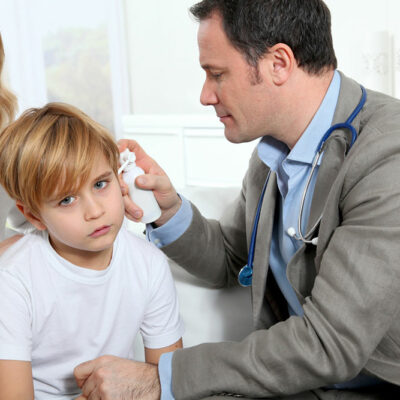
Diagnosing and Treating Chronic Allergies
An allergic reaction is what occurs when your body is extra sensitive to a given substance and the immune system reacts to it. People can have a food allergy, asthma, pollen allergy, and environmental or seasonal allergy. Substances that cause an allergic reaction are called allergens, and they can cause inflammation of the skin, sinuses, digestive system, or swelling of the airways.
Allergies and their severity vary from person to person. The severity of an allergy can range from a minor redness or irritation to a life-threatening emergency. There are different allergies and all of them broadly fall under the following types:
- Food allergies
- Insect allergies (i.e., bee or wasp stings)
- Animal or pet allergies (i.e., fur or dander)
- Drug allergies
- Respiratory and eye allergies (i,.e., exercise or environmental allergy)
- Skin allergies.
- Food allergies
An important part of treating allergies is getting tested for an allergy. In other words, diagnosing the allergies one is an important part of the treatment. Diagnosis of chronic allergy is the first step in knowing which area needs treatment. To diagnose an allergy, doctors as questions about the signs and symptoms of an allergy in detail. Doctors also aim to identify allergens that trigger asthma in people. They perform a physical exam and ask the patient to maintain a daily diary with symptoms and possible triggers. Doctors also recommend skin and blood test to find out the allergens. Once doctors have understood the type of allergy one has and its cause, they begin with different types of treatments:
1. Avoiding allergens
Once the doctor identifies the allergens, they help the patients to take steps that will help them avoid those allergens or allergy triggers thereby preventing themselves from getting an allergic reaction. This also helps people with asthma to avoid allergens in order to prevent an asthma attack.
2. Immunotherapy
Allergen immunotherapy is used to ease allergy symptoms in cases of severe allergies or when other treatments are not effective. In Immunotherapy, there are a series of injections that contain purified allergen extracts that are given to the patient over a period of a few years.
3. Allergy medications
Some medications can help one reduce the reaction of the immune system to the allergens and ease the symptoms. Doctors may also recommend some over-the-counter medication in pills, liquid, spray, or eyedrop form.
4. Emergency epinephrine
When a patient suffers from a severe allergic reaction, especially an allergen-triggered-asthma, they are given emergency epinephrine shot (i.e., EpiPen) every time they get an allergic reaction.
5. Asthma pumps
In addition to emergency epinephrine, controller pumps and reliever pumps are also prescribed to asthma patients for daily and emergency use.
6. Clinical trials
Clinical trials are basically treatments that doctors test on patients to see if they provide better results than the traditional treatments. For treating allergies or chronic allergies, the options include lifestyle changes and home remedies and alternative medicine.
Allergy can be treated or controlled with the right approach. One must learn about different allergies and get an appointment with their doctor to get a proper diagnosis and start their treatment.


